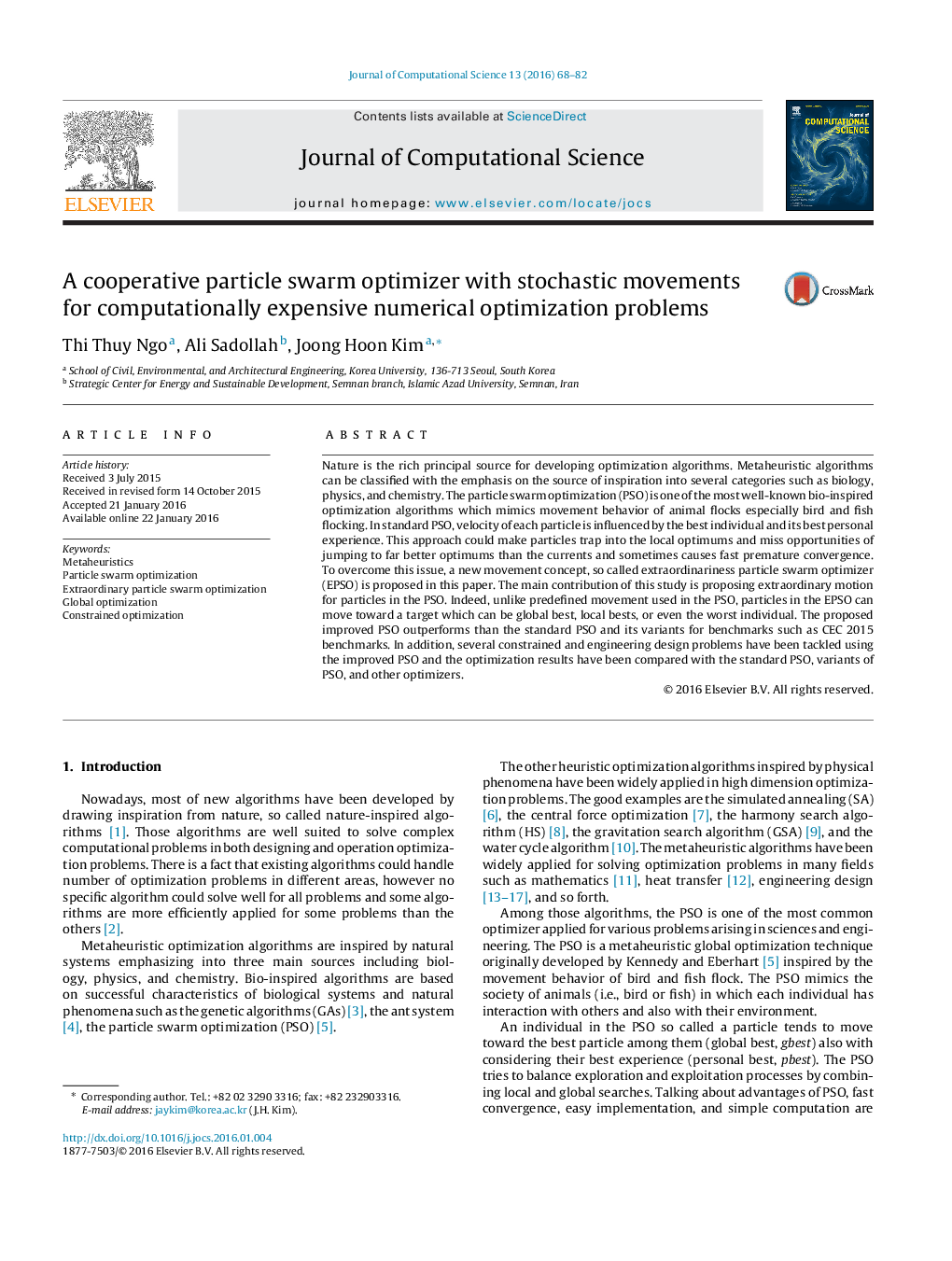| Article ID | Journal | Published Year | Pages | File Type |
|---|---|---|---|---|
| 429483 | Journal of Computational Science | 2016 | 15 Pages |
•An improved version of PSO has been proposed, so called extraordinary PSO (EPSO).•Validation of EPSO by computationally expensive benchmark problems reported in CEC’15.•Application of EPSO for optimal solving of benchmark constrained and engineering design problems.•EPSO has been compared with the standard PSO and its other variants.•EPSO offers better quality solutions with respect to other reported optimizers.
Nature is the rich principal source for developing optimization algorithms. Metaheuristic algorithms can be classified with the emphasis on the source of inspiration into several categories such as biology, physics, and chemistry. The particle swarm optimization (PSO) is one of the most well-known bio-inspired optimization algorithms which mimics movement behavior of animal flocks especially bird and fish flocking. In standard PSO, velocity of each particle is influenced by the best individual and its best personal experience. This approach could make particles trap into the local optimums and miss opportunities of jumping to far better optimums than the currents and sometimes causes fast premature convergence. To overcome this issue, a new movement concept, so called extraordinariness particle swarm optimizer (EPSO) is proposed in this paper. The main contribution of this study is proposing extraordinary motion for particles in the PSO. Indeed, unlike predefined movement used in the PSO, particles in the EPSO can move toward a target which can be global best, local bests, or even the worst individual. The proposed improved PSO outperforms than the standard PSO and its variants for benchmarks such as CEC 2015 benchmarks. In addition, several constrained and engineering design problems have been tackled using the improved PSO and the optimization results have been compared with the standard PSO, variants of PSO, and other optimizers.
